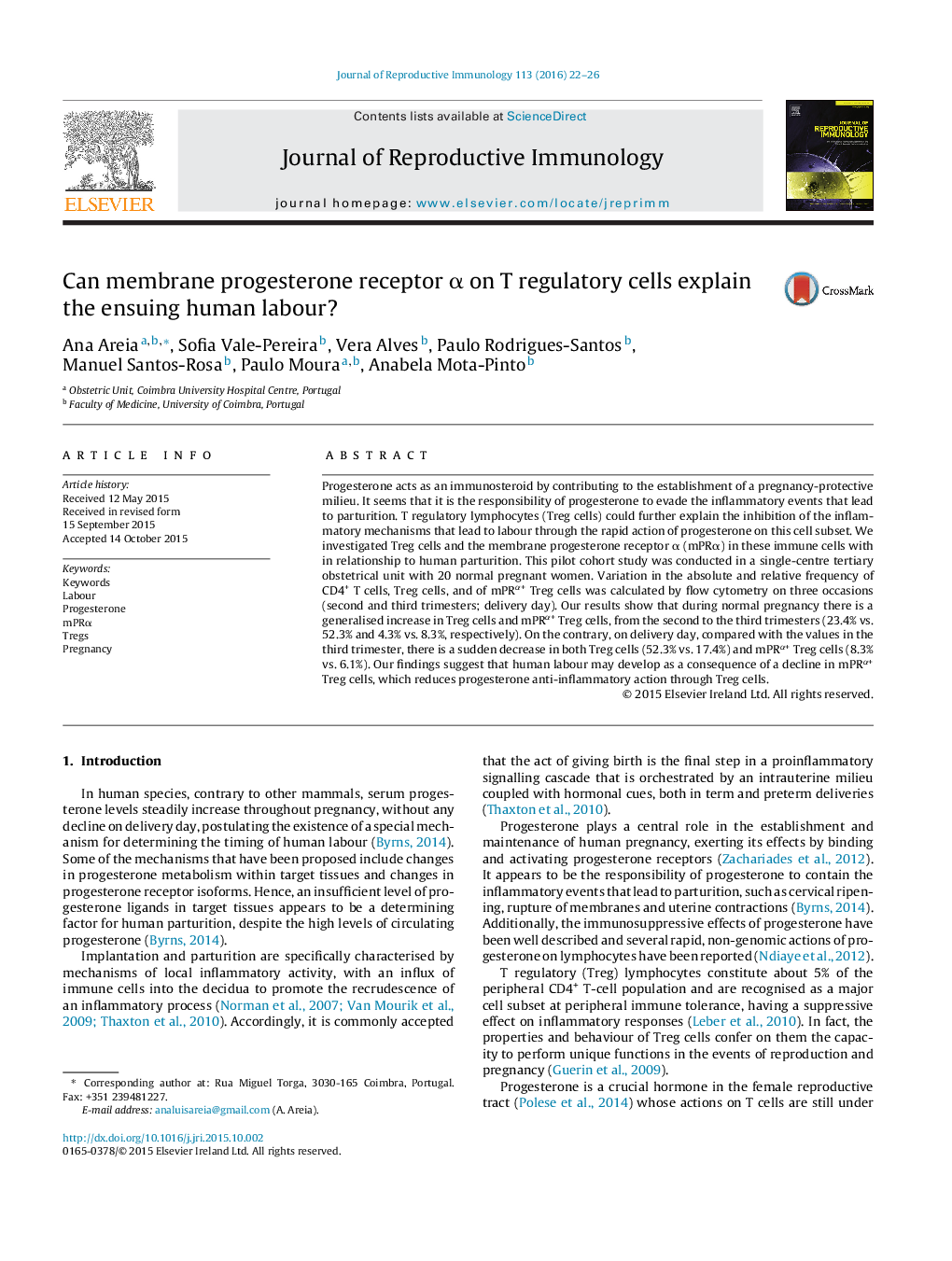| Article ID | Journal | Published Year | Pages | File Type |
|---|---|---|---|---|
| 6187831 | Journal of Reproductive Immunology | 2016 | 5 Pages |
â¢The timing of human labour is still an enigma.â¢Treg cells are important in maternal tolerance.â¢Progesterone has anti-inflammatory actions.â¢A decrease in mPRα may be responsible for human labour.
Progesterone acts as an immunosteroid by contributing to the establishment of a pregnancy-protective milieu. It seems that it is the responsibility of progesterone to evade the inflammatory events that lead to parturition. T regulatory lymphocytes (Treg cells) could further explain the inhibition of the inflammatory mechanisms that lead to labour through the rapid action of progesterone on this cell subset. We investigated Treg cells and the membrane progesterone receptor α (mPRα) in these immune cells with in relationship to human parturition. This pilot cohort study was conducted in a single-centre tertiary obstetrical unit with 20 normal pregnant women. Variation in the absolute and relative frequency of CD4+ T cells, Treg cells, and of mPRα+ Treg cells was calculated by flow cytometry on three occasions (second and third trimesters; delivery day). Our results show that during normal pregnancy there is a generalised increase in Treg cells and mPRα+ Treg cells, from the second to the third trimesters (23.4% vs. 52.3% and 4.3% vs. 8.3%, respectively). On the contrary, on delivery day, compared with the values in the third trimester, there is a sudden decrease in both Treg cells (52.3% vs. 17.4%) and mPRα+ Treg cells (8.3% vs. 6.1%). Our findings suggest that human labour may develop as a consequence of a decline in mPRα+ Treg cells, which reduces progesterone anti-inflammatory action through Treg cells.
